|
The OP
Published on 2019-6-17 17:49
Only look at the author
This post is from Electronics Design Contest
| ||
|
|
||
|
2
Published on 2019-6-18 08:23
Only look at the author
| |
|
|
|
|
|
- 【Posts】Power Supply Competition Experience Sharing
- 【Posts】My sharing of the electrical competition (11 years of power supply competition)
- 【Posts】Switching Power Supply PCB Experience Sharing
- 【Posts】Six sharings of power supply design experience
- 【Posts】I am new to power supply and would like to ask for help in selecting the values of some components in the feedback circuit below. I really want to understand
- 【Posts】The flyback switching power supply designed here will have a flashback problem after power is turned off when the output end is fully loaded.
- 【Posts】Regarding the issue of adding a power control loop when using P-MOS as a power high-side switch
- 【Posts】Switching Power Supply Interest Group: Mission 01
- 【Download】Sharing experience on EMI rectification of switching power supply
- 【Download】Sharing of key technologies and construction experience of large-scale energy storage power stations (Li Zhanjun)
- 【Download】EEWorld netizens share their experience in national competitions
- 【Download】Guangdong Tower 5G Network Construction Experience Sharing
- 【Download】Selection of Typical Design Examples of Switching Power Supplies
- 【Download】\"PCB Design Experience\" Full Version
- 【Download】PCB wiring design experience
- 【Download】《开关电源的原理与设计》 张占松,蔡宣三著
- 【Design】8-bit VFD screen driver board sharing has been verified ok
- 【Design】EEWorld netizens share experiences in national competitions
- 【Design】#SecondLiChuangContest# Entries "Based on STM32/FPGA Virtual Oscilloscope/Signal Source/Frequency Sweep/Spectrum Analyzer"
- 【Design】Complete entry procedures for car competitions (nearly ten teams)
- 【Design】ip5306 power management module shared version
- 【Design】ESP01S power switch has been verified for use.
- 【Circuits】Power supply design experience summary
- 【Circuits】AD power supply circuit design experience, worth collecting
- 【Circuits】Variable benchtop power supply circuit sharing
- 【Circuits】Power failure alarm circuit sharing
- 【Circuits】Dual-way power switch sequence control circuit
- 【Circuits】Step-down power supply for driving relays
- 【Articles】Microcontroller introductory experience sharing 1-Crystal oscillator reset circuit and power supply
- 【Articles】Engineers share their experience in switching power supply testing and measurement
- 【Articles】Experience sharing: Five ways to correctly choose a mobile power bank
- 【Articles】Engineers’ experience sharing: DCDC module power supply selection reference
- 【Articles】Experience summary and sharing of electrical fault troubleshooting methods
- 【Articles】C51 programming experience summary sharing
-
My sharing of the electrical competition (11 years of power supply competition)
WhenIwasinschool,IhadthehonorofparticipatinginanelectricalcompetitionIthasbeensolongthatIcan’trememberthequestionsclearly.Itwasthiselectronicscompetitionexperiencethatcultivatedmyabilitiesfromdesigntolayouttoplatemakingtosoftwareandhardwar ...
-
Switching Power Supply PCB Experience Sharing
SwitchingPowerSupplyPCBExperienceSharingInfact,foraswitchingpowersupplyengineer,PCBdrawingisactuallyacrucialpartthataffectsaproductThisisafinishedswitchingpowersupplymoduleExperience1:SafetywiringspacingThisiswrittenintheagreementNotethatth ...
-
TI Award Live | Designing Smart Buildings with Arm-based AM6xA Processors
Inthiswebinar,learnhowtheArm-basedAM6xAprocessorportfolioenablessmartbuildingcontrolsystems,increasedenergyefficiencyandimprovedoccupancydetection.TIexpertswillintroducetheAM6xAvisionprocessorportfolioanddiveintothecapabilitiesoftheArm-base ...
- Optical fiber HDMI cable and copper core HDMI cable: Shanze brand recommendation
- Awards: Award Live | Next-generation magnetic sensing solutions: How XtremeSense TMR technology promotes efficient applications
- The first article is about downloading GD32L233C development resources
- In a superheterodyne receiver, after selecting the frequency of the signal, how does the receiver know what the frequency is in Hz?
- Review summary: Free review: AI development board based on Allwinner R329 chip
- Computer Organization and Design: Hardware-Software Interface (RISC-V Edition)
- What are the advantages of using stepper servo motors to replace stepper motors?
EEWorld Datasheet Technical Support
-
Qualcomm launches its first RISC-V architecture programmable connectivity module QCC74xM, supporting Wi-Fi 6 and other protocols
On November 14, Qualcomm announced the launch of two connectivity modules, QCC74xM and QCC730M, f
-
It is reported that memory manufacturers are considering using flux-free bonding for HBM4 to further reduce the gap between layers
On November 14, according to Korean media ETNews, Samsung Electronics, SK Hynix, and Micron are a
-
ON Semiconductor CEO Appears at Munich Electronica Show and Launches Treo Platform
During Electronica, ON Semiconductor CEO Hassane El-Khoury was interviewed by Power Electronics N
- AMD launches second-generation Versal Premium series: FPGA industry's first to support CXL 3.1 and PCIe Gen 6
- SEMI: Global silicon wafer shipment area increased by 6.8% year-on-year and 5.9% month-on-month in 2024Q3
- TSMC's 5nm and 3nm supply reaches "100% utilization" showing its dominance in the market
- LG Display successfully develops world's first stretchable display that can be expanded by 50%
- Seizing the Opportunities in the Chinese Application Market: NI's Challenges and Answers
- New diaphragm-free solid-state lithium battery technology is launched: the distance between the positive and negative electrodes is less than 0.000001 meters
- Photoresist giant JSR Korea EUV MOR photoresist production base started construction, expected to be put into production in 2026
- Problems with STM32 and passive buzzer playing sound
- Embedded Tutorial_DSP Technology_DSP Experiment Box Operation Tutorial: 2-28 Building a Lightweight WEB Server Experiment
- OPA847IDBVR op amp domestic replacement
- AG32VF407 Test UART
- [Digi-Key Follow Me Issue 2] Chapter 1: Sharing on receiving the goods
- What model is this infrared receiver? Which model can be used instead? Thank you
- Selling brand new unopened ZYNQ 7Z020 FPGA core board
- The LORA module used in the lithium battery-powered water meter setting can save energy when 100 water meters are installed in one corridor.
- I would like to ask, when a port is set to RX0, is it necessary to set the input and output direction of this port?
- Why is this year so difficult? It’s even more difficult than during the pandemic. I’m 30 and facing unemployment. I’m so confused.
- Ask about the voltage regulator test question
- [Xiaohua HC32F448 Review] About Xiaohua Semiconductor's UART interrupt sending and PRINTF construction and redirection
- 【BIGTREETECH PI development board】 HDMI output test
- 【BIGTREETECH PI development board】+08. Audio test (zmj)
- [Xiaohua HC32F448 Review] +RTC electronic clock
- # STM32H7S78-DK Development Kit Three-week Review: Implementation and Analysis of Simple Sound Collection and Storage Using SD Card Reading and Writing
- [STM32H7R/S] Review⑧ nano edge ai studio training a model--Part 1
- [2024 DigiKey Creative Competition] A "fortune-telling" artifact based on Raspberry Pi
- New energy vehicle on-board AC slow charging and maintenance
- Embedded Engineer AI Challenge Camp (Advanced): Deploy InsightFace algorithm on RV1106 for real-time face recognition of multiple people
- I want to make a self-driving car. I saw one on Bilibili that costs 300 yuan. I am hesitant.
- [K230 Embedded AI Development Board Review] + License Plate Recognition and Billing Management
- How to deploy LVGL free graphics library on low-cost ARM platform, based on Allwinner T113-i
- Please help me analyze the reasons why EMI fails.
- ChatTTS is really awesome!
- 参会有好礼 | 2024 瑞萨电子MCU/MPU工业技术研讨会
- 深圳站:11月30日(周六)深圳湾万怡酒店
上海站:12月06日(周五)上海喜玛拉雅酒店
奖励设置:现金红包、螺丝刀套装或30元京东卡
- Littelfuse 新品赋能电子产品安全可靠并高效, 10+挑战等你探索!
- Littelfuse 应用赋能星球,覆盖了诸多应用痛点及解决办法,邀请工程师一起探索,解锁更多设计力!
- 了解英飞凌新品AIROC™ CYW5591x 无线MCU,答题赢好礼!
- 无线键盘鼠标套装、智能音箱、登山包、收纳包
- 下载资料赢好礼!看Vicor模块化电源解决方案如何推动创新
- 活动时间:即日起-2024年12月31日
如何参与:点击活动页内您想了解的模块,找到资料下载即可参与抽奖,活动结束后统一发奖!
- 有奖活动|英飞凌高密度双相电源模块为高性能运算平台而生
- 活动时间:即日起-12月15日
活动奖励:蓝牙音箱、氮化镓充电器套装、黑色小背包
- 本周精选下载推荐:电源管理基础Dummies
- 本周小编给大家带来一本超简单、超干货的电子书——《电源管理基础Dummies》!内容深入浅出,排版舒服简洁,分分钟能get到电源管理最核心的知识内容。
EEWorld
subscription
account

EEWorld
service
account

Automotive
development
circle

About Us Customer Service Contact Information Datasheet Sitemap LatestNews
- I want to get started with deep learning programming, what should I do?
- I want to get started quickly with microcontroller development, what should I do?
- I want to get started with deep learning technology, what should I do?
- How to best get started with machine learning? Please give me a learning outline
- For the introduction to FPGA image processing programming, please give a learning outline
- For the introduction to FPGA autonomous driving, please give a learning outline
- For the introduction of SMT bonding materials, please give a learning outline
- What you need to get started with deep learning
- How to learn deep learning code
- How to get started learning robotics


 Room 1530, Zhongguancun MOOC Times Building,
Block B, 18 Zhongguancun Street, Haidian District,
Beijing 100190, China
Tel:(010)82350740
Postcode:100190
Room 1530, Zhongguancun MOOC Times Building,
Block B, 18 Zhongguancun Street, Haidian District,
Beijing 100190, China
Tel:(010)82350740
Postcode:100190
 京公网安备 11010802033920号
京公网安备 11010802033920号


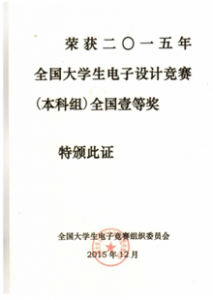

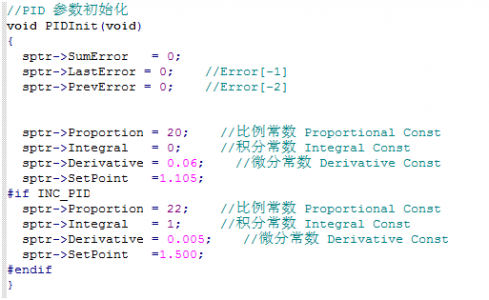
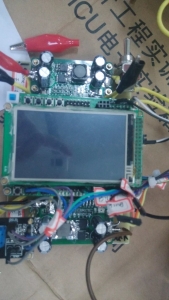
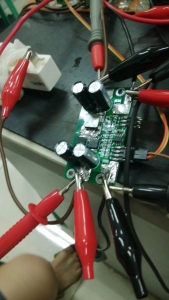
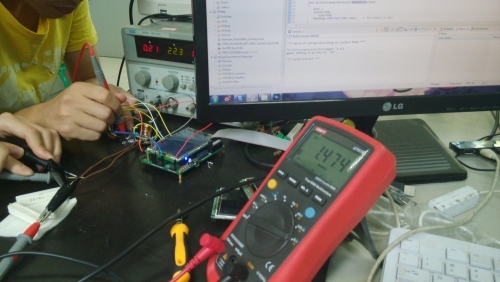
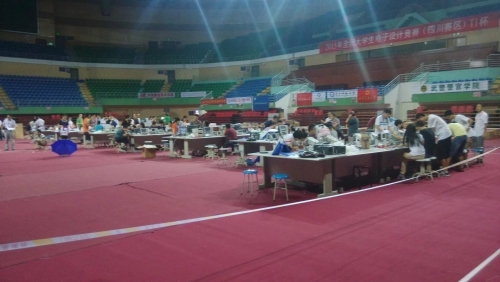
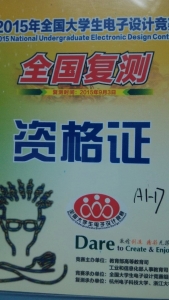
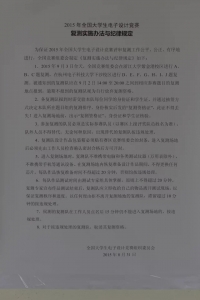
 提升卡
提升卡 变色卡
变色卡 千斤顶
千斤顶